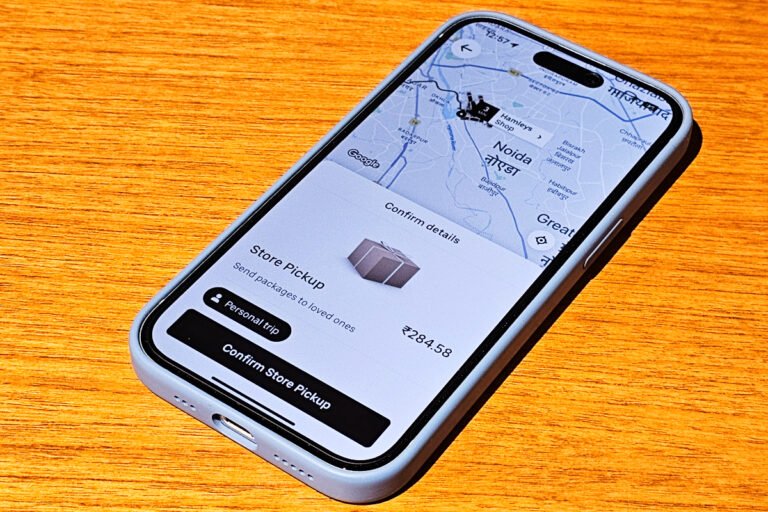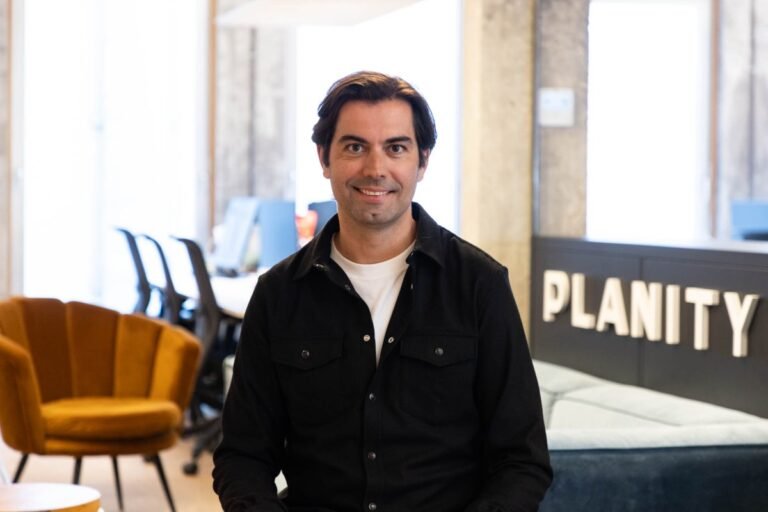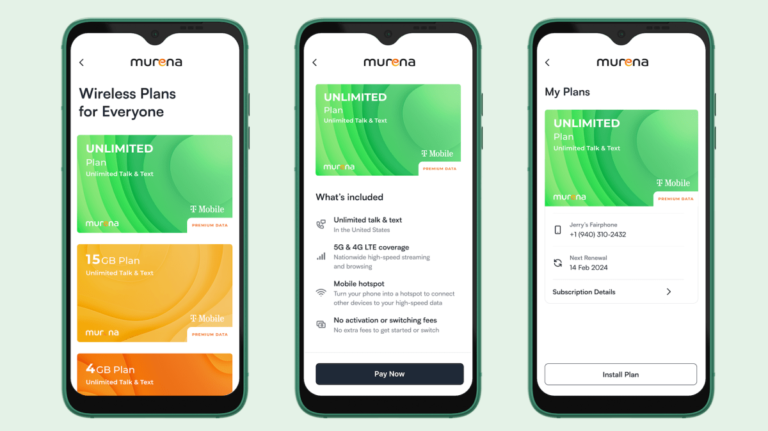
Mapping startup Hivemapper will launch a new dashcam later this year that its co-founder believes will speed up efforts to claw market share away from Google.
The new Hivemapper Bee camera, revealed Wednesday, is part of the company’s years-long push to decentralize mapping and make map data more affordable and accessible.
Late last year the company launched Scout, a “location monitoring tool” that lets customers “mark” a location and receive images every time a Hivemapper driver passes by.
The company says the Bee will create higher-quality map data that is less likely to be rejected upon submission.
Nelson says there are plenty of people who want to buy a Hivemapper camera for other reasons.

Chris Power, founder and CEO of industrial automation startup Hadrian, is a student of history.
“Never before in history has a declining empire beaten a rising empire, ever,” he said in a recent interview.
He had been running small e-commerce businesses and had been head of sales and marketing at an enterprise software company in Australia.
Construct Capital, WCM, Bracket Capital, Shrug Capital, Lux Capital, A16Z, Founders Fund, S&A, Silent Ventures, Cubit Capital, Caffeinated and other existing investors also participatedc.
Power said some customers expressed interest in alternate models, like having Hadrian build a dedicated facility to ensure committed factory capacity.

Uber has quietly started testing a feature that lets gig workers pick up prepaid items from local stores and deliver them to customers in India.
It suggests that Uber sees a business opportunity in delivering items from local stores in India — just like in the U.S.
For instance, the item set for pickup at the local store needs to be five kilograms (11 lbs) or less.
In addition to Store Pickup, Uber offers its regular Connect feature to let customers deliver packages through its app.
However, the Store Pickup feature is specifically for arranging deliveries from local stores.

The husband-and-wife duo departed World View in 2018; the following year, they started another balloon company, Space Perspective, this time squarely focused on ultra-high-altitude tourism.
Space Perspective, which aims to commence commercial service as soon as the end of this year, is entering a nascent market: its closest competitors are Virgin Galactic and Blue Origin, which offer rides to suborbital space.
There’s duration: a flight on New Shepard takes 11 minutes from lift-off to landing; Space Perspective’s will last six hours.
Simultaneously, Space Perspective is working with the U.S. Coast Guard, which maintains regulatory authority over space-related activities that occur in water.
One notable difference is development costs: Space Perspective has raised $77 million from investors since 2019, while Virgin Galactic has spent more than $1 billion developing its system.

French startup Planity has been taking advantage of France’s love affair with hair salons to launch a SaaS product for these businesses in particular.
Over time, the company expanded to other types of beauty salons, such as barbers and nail salons.
The startup’s co-founder and CEO Antoine Puymirat first started working on online appointment booking in 2007.
Instead of creating an all-encompassing appointment solution, he chose to focus on beauty salons specifically.
The platform handles around 10 million bookings per month — 4 million of them are booked directly by the end customers on Planity.

We’ve been hearing about the notion of customer experience forever, the idea that we could improve customer interactions with brands digitally.
Whether or not that’s true, the two founders fundamentally see AI agents as a new technology category, providing an entirely new way for customers to interact with brands to improve their overall experience.
Regardless, Taylor and Bavor recognize that there are some serious challenges and risks when it comes to humans interacting with these AI agents.
I think with AI we finally have technology that isn’t just making us more productive but actually doing the job.
Sierra clearly sees a big opportunity to transform customer experience with AI, but many obstacles stand in the way of success.

In an effort to retain developers, Apple has begun its pilot tests of “contingent pricing,” a new way for them to market App Store subscriptions, TechCrunch has learned.
That’s the case with the debut pilot test of contingent pricing that pairs up two apps: Structured and one sec.
(An interesting choice for the pilot, given Apple and Meta’s ongoing beef over App Tracking Transparency, which Meta said harmed its business!)
With contingent pricing, customers who subscribe to one of the apps can receive a discount if subscribing to the other.
Apple says it helps the developers with the implementation of contingent pricing to make the redemption process “seamless” for customers purchasing through its App Store.

A fledgling Dutch startup wants to help companies extra data from large volumes of complex documents where accuracy and security is paramount — and it has just secured the backing of Google’s Gradient Ventures to do so.
How it worksCompanies can access Send AI’s cloud-based software via APIs which funnels data from documents sent over email.
Upon receipt, Send AI visually enhances the documents before sending to its language models for classification and extraction.
In terms of pricing, Send AI charges on a credit-based basic, whereby customers pay per processing-step.
Send AI attempts to address such concerns by deploying small, isolated open source transformer models for each customer.

Agriculture has a long heritage of being constantly disrupted by technology, an evolution that has continued to play out until today.
Bluewhite will also be using the funding to continue expanding in its current markets, and to break ground in new ones.
“Labor, labor, labor: it is the biggest need,” he said in an interview.
Tractors fitted with Bluewhite’s robots can still be operated by humans in situations where they might still need to be.
Bluewhite cites forecasts from researchers that project a market worth $11.5 billion for autonomous tractors by 2030.

Murena, a French startup that sells “de-Googled” smartphones replete with its own flavor of Android, is launching an own-brand mobile network as it throws its hat into the fast-growing mobile virtual network operator (MVNO) ring.
Murena Mobile, as the new service is called, is built atop T-Mobile and is available to U.S. customers only.
With Murena Mobile now thrown into the mix, it has another recurring revenue stream to lean on.
Additionally, customers can’t actually sign up for a Murena Mobile plan at the same time as buying one of its eSIM-supported devices — they have to complete that transaction separately.
“In the future, we could think about a complete package with phone, cloud plan and a mobile plan all combined in a monthly subscription.”













